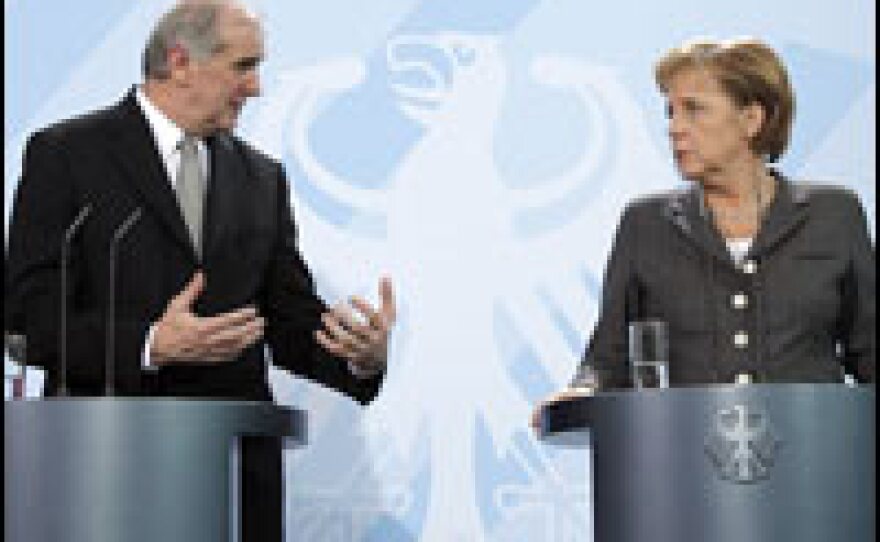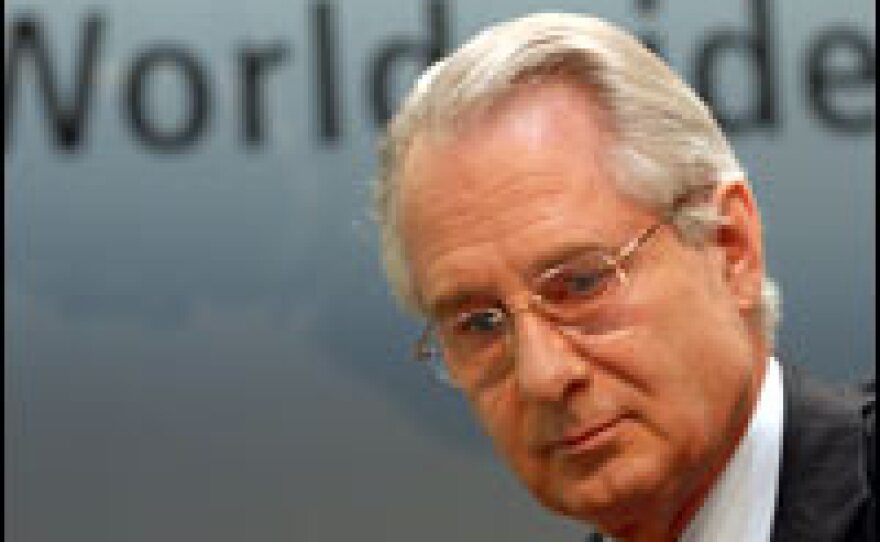


The IRS is investigating at least 100 people it believes have been avoiding taxes by hiding their money in a bank in the tiny European principality of Liechtenstein. U.S. tax investigators have joined colleagues in countries from Scandinavia to New Zealand looking at records, first obtained by German intelligence agents, which list hundreds of clients of a bank in Liechtenstein.
The affair has all the makings of a Tom Clancy novel — there's a spy agency, a mysterious informant, and high-level mud-slinging. There's also a lot of outrage among everyday Germans.
When Liechtenstein's prime minister, Otmar Hasler, came to Berlin last week to meet German Chancellor Angela Merkel, relations weren't as friendly as usual. Liechtenstein, a tiny country squashed between Switzerland and Austria, prides itself on its financial services and the banking privacy it offers its clients.
Acquiring Tax Secrets
But it's a little too private for Germans. Germany's intelligence agency, the BND, managed to crack the alpine principality's wall of secrecy looking for tax evaders, and it has netted at least one pretty big fish.
Journalists were invited to watch as Klaus Zumwinkel, the head of the German post office, was taken into custody. His name, and 1,000 others, showed up on a CD that the BND bought for $6 million from a disgruntled former employee of Liechtenstein's biggest bank, which is owned by the country's royal family.
Zumwinkel, who subsequently resigned his post, is suspected of evading around $1.5 million in taxes by funneling money to foundations in Liechtenstein. Based on the information on that CD, tax officials are carrying out up to 20 raids a day.
A 'Crack' in Trust
The tax scandal has hit a nerve in Germany, and feeds an already growing suspicion of the country's elites.
"It has just been another crack in the fundament of trust in German corporate leaders," says Christian Humborg, with Transparency International. "Now we see that the CEO of Deutsche Post, one of the leading German companies, has broken the law. That, obviously, the ordinary citizen on the street cannot understand."
Bernd Thiemann, who worked for Zumwinkel, is furious at what he thinks is greed, pure and simple.
"I think it's a disgrace," Thiemann says. "Zumwinkel gets 89,000 euros a month in retirement, but evidently that's not enough for him. These people should be locked up, I think."
'Little Guys Pay For It'
Ursula Wachtel, 55, who works as a washroom attendant, says she's been on and off welfare for a while now.
"The guys at the top do whatever they want, stuffing their pockets all the while, and us little guys pay for it," Wachtel says. "If people actually paid their taxes here, we could work down our national debt or we could help the poor, like the homeless."
But opinion is not unanimous. Some students at a private business school in Berlin say Germany's top tax rate of 45 percent is too high, and the tax code too complicated. Sebastian Gaiser says the government's intensive hunt for tax evaders is akin to class warfare.
"It just shows that in Germany, people are envious of high achievement," Gaiser says. "We don't live in a meritocracy. Rather, it's a society based on envy. I think that's a shame, because pillorying these executives who create jobs for the economy isn't going to do a lot for the country."
But tracking down those tax dodgers could help replenish government coffers. It's estimated that Germans evade about $44 billion in taxes every year.
As for Liechtenstein, it has expressed outrage about the violation of its banking secrecy, and about German intelligence buying information that was gained illegally. The principality has said Germany has been dealing in stolen goods in order to crack down on its tax dodgers.
Copyright 2022 NPR. To see more, visit https://www.npr.org. 9(MDAzMjM2NDYzMDEyMzc1Njk5NjAxNzY3OQ001))






